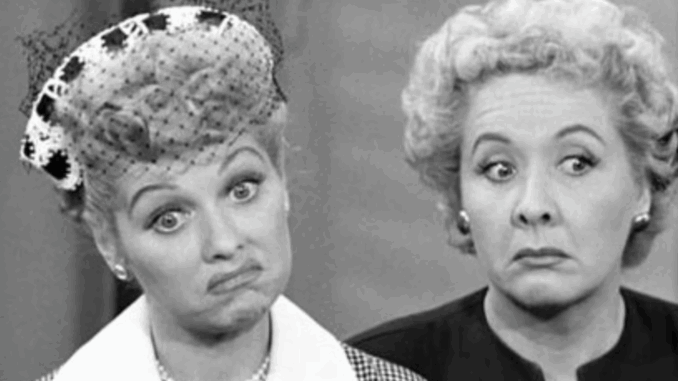
In the technicolor memory of I Love Lucy, we remember Lucy Ricardo with a mouthful of chocolates, Ricky bellowing in Spanish, and Fred Mertz grumbling from his armchair. But somewhere in between, often clad in floral house dresses and a pati
Played masterfully by Vivian Vance, Ethel wasn’t just a sidekick. She was the secret weapon that made Lucy’s chaos not only watchable, but human. And maybe it’s time we finally gave her credit for holding the whole thing together.
Not Just the “Straight Woman”
In most sitcom formulas, the zany protagonist needs a “straight” character to bounce off. Ethel was that — but she was also more. When Lucy dreamed up another outrageous plan, Ethel didn’t just say, “Oh Lucy, no.” She said, “Oh Lucy… fine. But if we go to jail again, I’m telling Fred it was your idea.”
That weary but loyal energy was gold. Vivian Vance had a knack for dry wit, and her delivery made even simple lines land like punchlines. She played off Lucille Ball with such natural chemistry that viewers sometimes forgot the scripts were written. That bond — part sisterhood, part co-conspirators — defined one of the most iconic female friendships in TV history.
The First Realistic Woman on TV?
Lucy was the dreamer, the rebel, the star. But Ethel was the one viewers saw themselves in. She wore sensible shoes. She worried about rent. She loved her husband but rolled her eyes at him. She represented a working-class woman with dignity, sass, and a real sense of presence. And that’s huge in an era where most women on television were paper-thin caricatures.
More than that, Vivian Vance was the first TV actress to openly refuse to be a prop. She insisted on fleshing out Ethel’s personality, giving her backstory, stubbornness, even desires. This wasn’t a woman placed on screen to react — she had her own life, and it showed.
A Star Mismatched by Design
Behind the scenes, there was tension. Vivian Vance was nearly two decades younger than William Frawley, the actor who played her husband Fred. She was also, bluntly, too glamorous for the role of a frumpy landlady. The studio made her wear dowdy clothing and heavier makeup to “age her up.” Vance reportedly hated this — and it created a lifelong rift between her and Frawley.
But instead of letting the resentment ruin her performance, Vance leaned in. Ethel’s exasperation with Fred became more than comedy — it was authentic. And that authenticity became one of the show’s trademarks. Their arguments felt real because, in a way, they were.
An Unlikely Fashion Icon
Ironically, the very dowdiness imposed on Ethel eventually gave her cult status. In recent years, vintage fashion communities have celebrated her iconic 1950s wardrobe. The high-waisted skirts, printed blouses, and matching accessories are now seen as classic Americana — proof that even when the world tried to dull her shine, Ethel stood out.
Vivian Vance: The Unsung Pioneer

When I Love Lucy ended, Vance didn’t disappear. She became the first woman to win an Emmy for Best Supporting Actress. She went on to co-star in The Lucy Show and carved a legacy of her own, though forever in Lucy’s shadow.
But make no mistake — without Vivian Vance, I Love Lucy would have crumbled. She was the glue. The realist. The warmth that balanced Lucy’s wild spark. And she did it all while wearing a smile and carrying the emotional weight of the series on her back.
Why Ethel Still Matters in 2025
In an age of reboots and nostalgia, modern audiences are rediscovering Ethel — and finding something surprisingly modern. She’s the overworked woman who wants five minutes of peace. She’s the friend who helps bury the metaphorical body and complains the whole time. She’s the woman who doesn’t get enough credit — and keeps going anyway.
Maybe that’s the real legacy of Ethel Mertz. Not just as a supporting character, but as a symbol of all the women who kept things steady while someone else got the spotlight.
So here’s to Ethel — the friend, the foil, the feminist before the word was trendy. Lucy may have stolen the show, but Ethel made it matter.